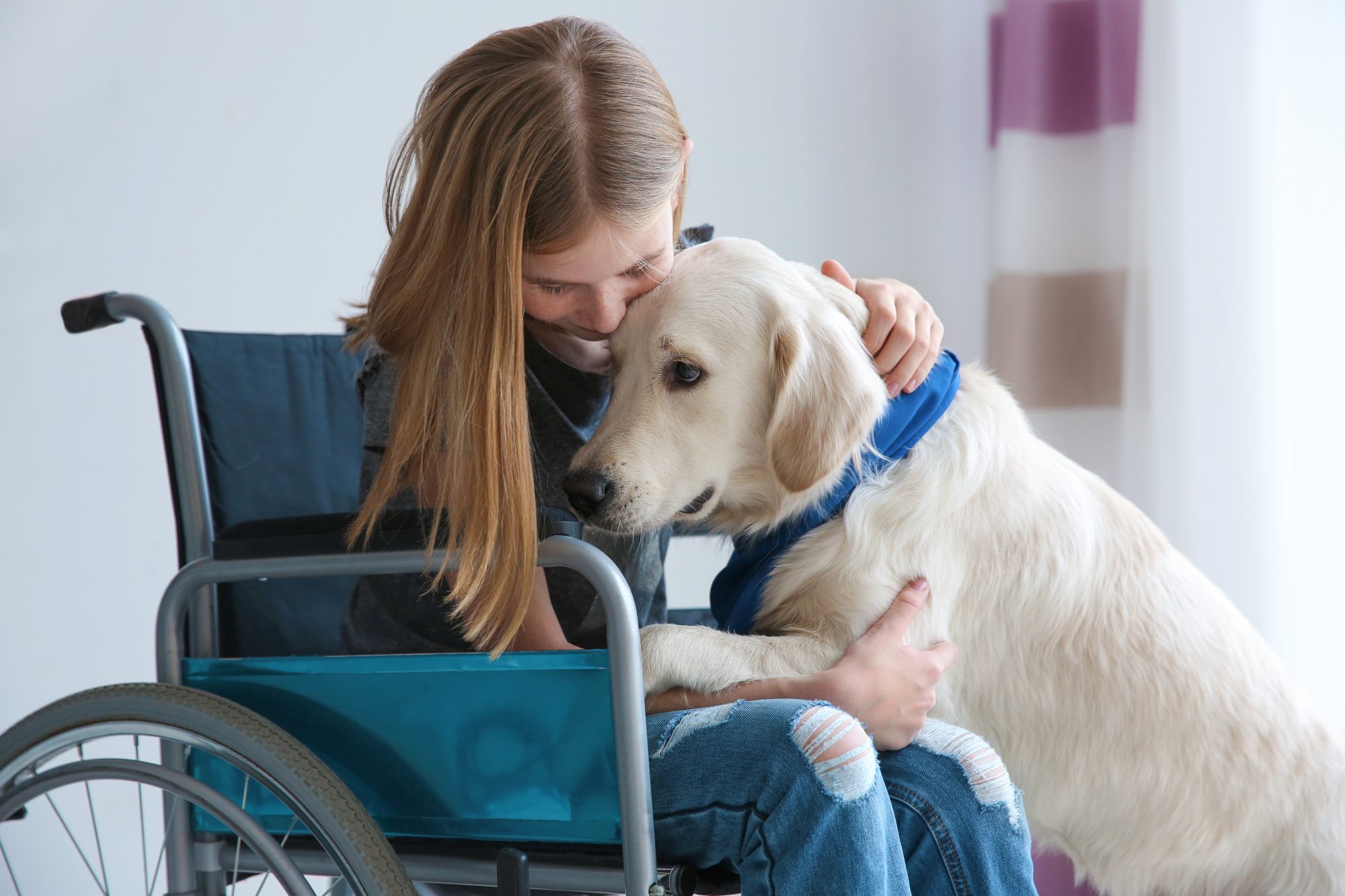Transforming Lives: 7 Amazing Ways Pets Help Children with Disabilities

We know that pets give us unconditional love and joy. They improve our mental health, increase relaxation, and make us healthier. When it comes to children with special needs, studies show that the bond between differently-abled kids and pets can prove to be especially invaluable. There are many ways pets help children with disabilities. The team at Oakland Veterinary Referral Services is here to explain this wonderful relationship.
A Friend, Indeed
Most pets, especially dogs, love to feel connected to their person. Dogs also thrive when they can be of service, from those who work with police and military to those who are trained to be service or therapy dogs. Your average mutt and kitty are happy just to be your companion and to be there for you when you need them.
Service dogs began assisting the blind in the late 1700s and have continued to be of service in more sophisticated roles over the past two hundred years. Service dogs are companions to those who are blind or have hearing loss. They also help those who suffer from PTSD, have debilitating medical conditions, and/or have immobility.
Most recently, therapy and service dogs are being extensively trained to work with special needs children.
How Do Pets Help Children with Disabilities?
Along with the emotional comfort a pet brings, there are practical ways that a pet can offer help.
- Basic needs – From fetching a needed item to pushing open doors, opening drawers, and helping with getting dressed each day, a pet can serve as practical help.
- Sweet dreams – A companion pet can help a restless child relax and have a better night’s sleep. Pets can seem safe and relaxing for those children with anxiety or problems with insomnia.
- Best friend forever – A pet will bond with you like no other. A dog or cat companion will offer emotional support and unconditional love to a special needs child. A pet is a non-threatening friend who is always there to listen.
- Lifesaving skills – Kids who have medical conditions that can come on quickly or be life-threatening benefit from a support dog who is trained in detecting problems. These highly skilled dogs can alert others to help when there is an impending emergency.
- Prevention of wandering – These pet companions can wake a child who is prone to sleepwalking. They can also alert the parents when the child is in danger of wandering away.
- Improved confidence – Kids with special needs are prone to low self-esteem and lack of confidence. By having a special companion who assists them, they are better able to socialize, perform tasks, and develop coping and communication skills when among peers.
- More exercise – Being with a furry pal gives a child more chances to be active. From playing with a ball, going for walks, and enjoying outdoor time together, their opportunity for recreation increases tenfold. Some service animals also assist with physical therapy and low impact exercises that encourage mobility.
Equine Therapy
Working with horses, many special needs children are able to increase their capacity for trust, safety, and communication. Horses have long been one of the more sensitive and intuitive animals we call family. These amazing beasts help a child develop motor skills and coordination, as well as offer emotional support.
Pets Make Special Friends
No matter if your pet is specially trained or not, any pet companion can bring great deal of joy and comfort to a disabled child. They are able to bridge the gap between emotional and physical needs and communicate their love, affection, and reliance to a child. If you would like more information on how pets help children with disabilities or other questions, please contact us.


